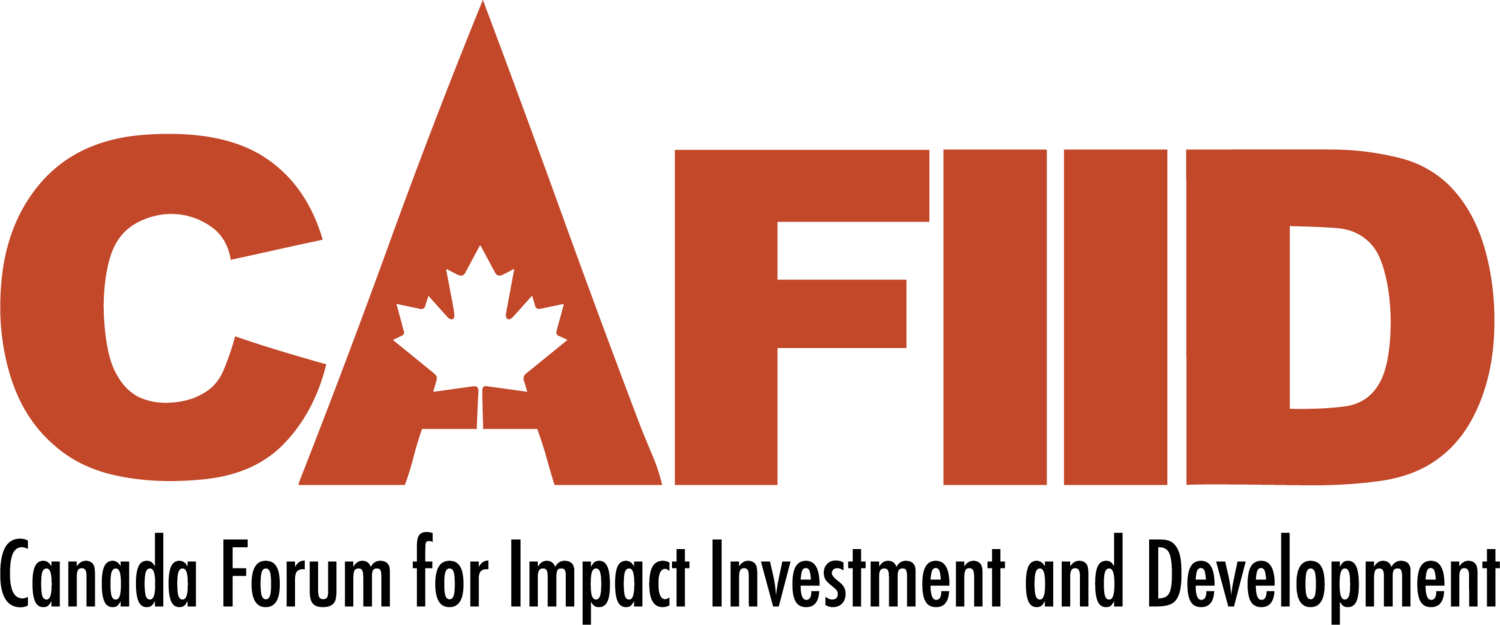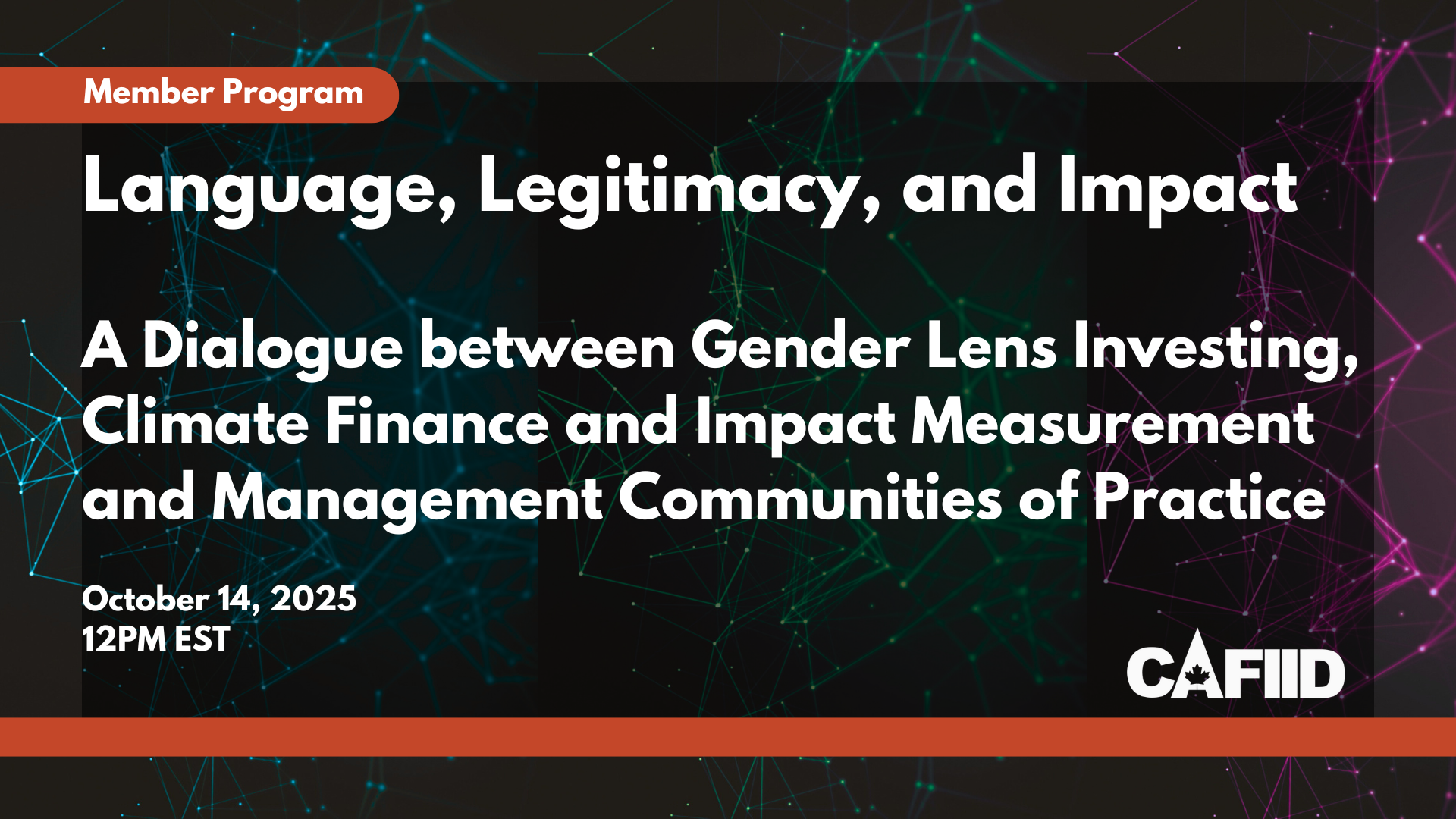Language, Legitimacy, and Trust in Impact Investing
A Cross-CoP Conversation on Climate, Gender, and Measurement
CAFIID members and partners gathered for a dynamic discussion on how language shapes trust, legitimacy, and power within the evolving field of impact investing. The session, convened across CAFIID’s Climate Finance, Gender Lens Investing, and Impact Measurement & Management Communities of Practice, explored how words not only describe impact but define who gets to lead, benefit, and participate in it.
Moderator Joanne Norris opened by reflecting on how language sets agendas, directs capital, and frames what “impact” means in practice. Aysha Dawood shared insights from the upcoming State of the Sector Report, noting that while Canada’s impact investing ecosystem continues to grow, definitions and standards vary widely. Building shared understanding—rooted in intentionality, measurability, and transparency is key to strengthening trust and avoiding “impact,” “green,” or “pink” washing. Patrick Hergt, CAFIID Vice-Chair, and Rob Friberg, a CAFIID member and researcher, previewed recommendations from the report, including modernizing Canada’s Income Tax Act to enable greater impact investment by charitable foundations, encouraging impact-focused retail products, and calling on institutional investors to dedicate a share of assets to impact, particularly in emerging markets.
The panel turned to evolving discourse in gender and climate investing. Emily Boost highlighted a growing shift in language: some organizations are moving away from terms like feminist approaches or gender transformative due to political sensitivities, even as gender lens investing continues to drive value and inclusion. She emphasized the importance of precision and persistence in maintaining focus on equity and highlighted opportunities through new entry-points, such as a focus on care.
Sabina Bharwani unpacked how changes in climate disclosure rules particularly in the U.S. and Europe are reshaping investor confidence. Reduced reporting requirements risk weakening transparency, yet strong commitments from private foundations, venture capital, and emerging markets offer hope.
Kate Murray spoke on the evolving role of impact measurement in building credibility, noting that regulatory uncertainty makes consistent definitions and third-party verification more essential than ever. She pointed to opportunities for digital tools and AI to reduce reporting burdens while maintaining focus on local outcomes and authenticity.
Across all discussions, one theme stood out: trust. From gender and climate disclosures to impact measurement and market design, participants agreed that clarity of language and the intent behind it remains foundational to scaling impact with integrity.
As Joanne concluded: Language is not just how we describe impact—it’s how we build it.
Invitation
As the impact investing field grows in influence, so too does the scrutiny of its language and legitimacy. From shifting narratives around DEI and Climate to skepticism about “impact” itself, many practitioners are encountering increased tension around how we talk about the work we do. In anticipation of the State of the Sector Report launch, this cross-community of practice session brings together our Impact Measurement and Management, Gender-Lens Investing, and Climate Finance communities for a candid, forward-looking discussion on how evolving language and values are reshaping practice.
Featuring
Joanne Norris - Moderator
Kate Murray - Representing the Impact Measurement and Management Community of Practice
Emily Boost - Representing the Gender Lens Investing Community of Practice
Sabina Bharwani - Representing the Climate Finance Community of Practice

